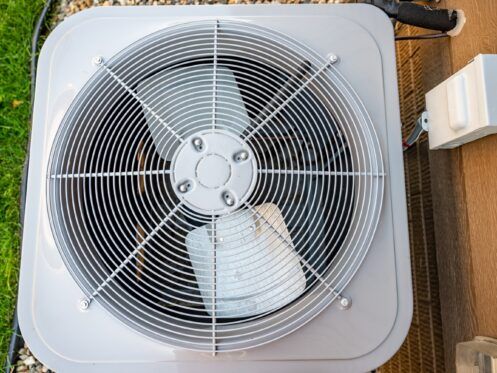In summer, there’s nothing more important than having a functional air conditioner in your Beckley, West Virginia home. Scheduling annual AC maintenance before the cooling season starts is the best way to catch and correct small problems before they leave you without reliable cooling equipment. However, as air conditioners age and experience progressive wear, there’s an increasing likelihood of being caught off-guard. The following are seven signs your air conditioner needs the help of a licensed HVAC contractor.
1. Short, Frequent Cooling Cycles
When your living space feels hot and humid, hearing your air conditioner cycle on is comforting. You know that within just minutes, there should be a noticeable decrease in both indoor temperature and indoor moisture. However, if you hear your air conditioner cycling on and then rapidly cycling back off, this is an indication of a potentially serious issue. Also known as short cycling, this sudden and dramatic change in AC performance could be the result of a dirty air filter or blocked air ducts.
If you aren’t up to date with general AC maintenance, take a look at your HVAC air filter first. If this component is covered in a thick, lint-like layer of grime, this is probably the culprit. Taking the old filter out and putting a new one in should put a swift end to short cycling. However, if your AC filter is clean or if short cycling immediately recurs, you should schedule service. In most cases, air conditioners rapidly cycle off to prevent permanent damage caused by excess stress and overheating. Because short cycling is a failsafe measure, continuing to use cooling equipment could result in a permanent breakdown.
2. Your Home Is Cool But Clammy
Regulating temperature is only one part of what air conditioners do to promote indoor comfort. They also filter the indoor air and remove excess moisture. If your air conditioner’s ability to regulate humidity has declined, this may be due to airflow obstructions, a blocked or damaged condensate line, or an incorrect fan setting.
Not only does insufficient humidity regulation affect resident comfort, but it also sets the stage for mold and mildew growth. Having too much humidity in your home can negatively impact your indoor air quality (IAQ) and leave you with damp, damaged building materials.
3. Foul Odors
Foul odors in air conditioning systems are usually the result of excess moisture and poor humidity regulation. You might have blooms of algae that are blocking your air conditioner’s condensate drain line, or you may have mold, mildew, and other fungi proliferating in your HVAC air vents and ducting. However, foul smells can also be the result of pest problems or electrical malfunction.
If pests are the issue, there’s a good chance that rodents or other small-sized animals have wandered into your HVAC ductwork. Their feces, fur, and ongoing activities leave indoor air riddled with allergens, pathogens, and other contaminants. There are also times when wandering animals enter these systems and cannot find their way back out. If you’ve recently used poison to combat rodent problems on your property, your HVAC air ducts are a likely place for dying animals to finish their final moments. In either case, what you’re left with are smelly, decomposing carcasses.
With electrical problems, air conditioners might emit faint and slightly sweet burnt odors. These are an indication of bare, burning wires or internal short circuits. If your air conditioner’s fan motor or circuit board has recently shorted out, you might encounter a gun-powder-like smell.
Blocked AC condensate drains tend to have a “dirty gym sock” aroma. Algal blooms and stagnant water can make homes both smell and feel like a busy locker room. Scheduling AC repairs will improve the efficiency and performance of your cooling system. It will also create a more comfortable and fall better-smelling living environment.
4. Your Air Conditioner Is Making a High-Pitched, Shrieking Noise
With moving equipment, high-pitched shrieking noises are never a good sign. If your air conditioner has become especially loud during operation, continuing to run it could make the underlying problem worse than it already is. Shrieking sounds are often an indication of metal-on-metal contact where two parts are grinding against each other, and the resulting friction is producing near-constant noise.
Shrieking noises could be the result of a damaged fan motor in the outdoor condenser/compressor unit, or a damaged blower motor in the indoor air handling unit. In either case, turn your cooling system off right away. With a timely repair, the issue may require little more than a slight adjustment or a low-cost parts replacement.
5. Your Air Conditioner Is Running But Your Home Isn’t Getting Any Cooler
When air conditioners run non-stop but building interiors don’t get cooler, airflow issues often lie at the heart of the matter. You might be able to successfully troubleshoot the problem by changing your HVAC air filter, cleaning your HVAC air vents, and making sure that all air vents, registers, or grilles are completely open. However, blockages that exist inside HVAC equipment should always be cleared by licensed professionals. Only a seasoned technician can determine whether airflow and cooling problems are duct-related, refrigerant-related, or the result of mechanical malfunction.
6. Your Energy Bills Are on the Rise
Although air conditioners can last up to 15 years, this doesn’t mean that you’ll get optimum performance throughout your cooling system’s entire lifespan. Most air conditioners lose about half of their efficiency after just 10 years of service. Worse still, losses in efficiency after this time are both ongoing and cumulative. If you have an older air conditioner and your energy bills have been steadily rising, this is a sign of normal aging and an indication that the time for replacement is near.
However, if your energy bills have suddenly skyrocketed, AC problems are the most likely culprit. A sudden rise in energy consumption that’s not related to changes in your household size, the addition of new appliances, or other environmental or lifestyle-related factors can be easily attributed to your HVAC system. After all, during times of high heating and cooling demand, most HVAC systems can account for half of household energy use. Scheduling AC service is a great way to identify the underlying problem and give yourself a little spending relief.
7. Build-ups of Moisture On or Around Your Air Conditioner
Pooling water or other accumulated moisture on or around your AC equipment isn’t a good sign. These build-ups might mean that your air conditioner is no longer routing condensed water correctly. They can also mean that your air conditioner is leaking refrigerant.
Finding and fixing refrigerant leaks is essential for protecting the health and lifespan of your AC compressor. In the instance of dripping condensate, there may be a broken or blocked line that’s preventing collected moisture from reaching the condensate drain. Finding and resolving the problem will protect your IAQ, improve humidity regulation, and boost your air conditioner’s performance.
We’ve been serving residents of Beckley, WV and the surrounding areas since 1951. We offer heater and air conditioner maintenance, installation, and repair services. Our clients can also turn to us for cutting-edge IAQ solutions, plumbing service, electrical service, and preventative maintenance agreements. To schedule AC repairs, contact Childers Air Plumbing & Electric now.

